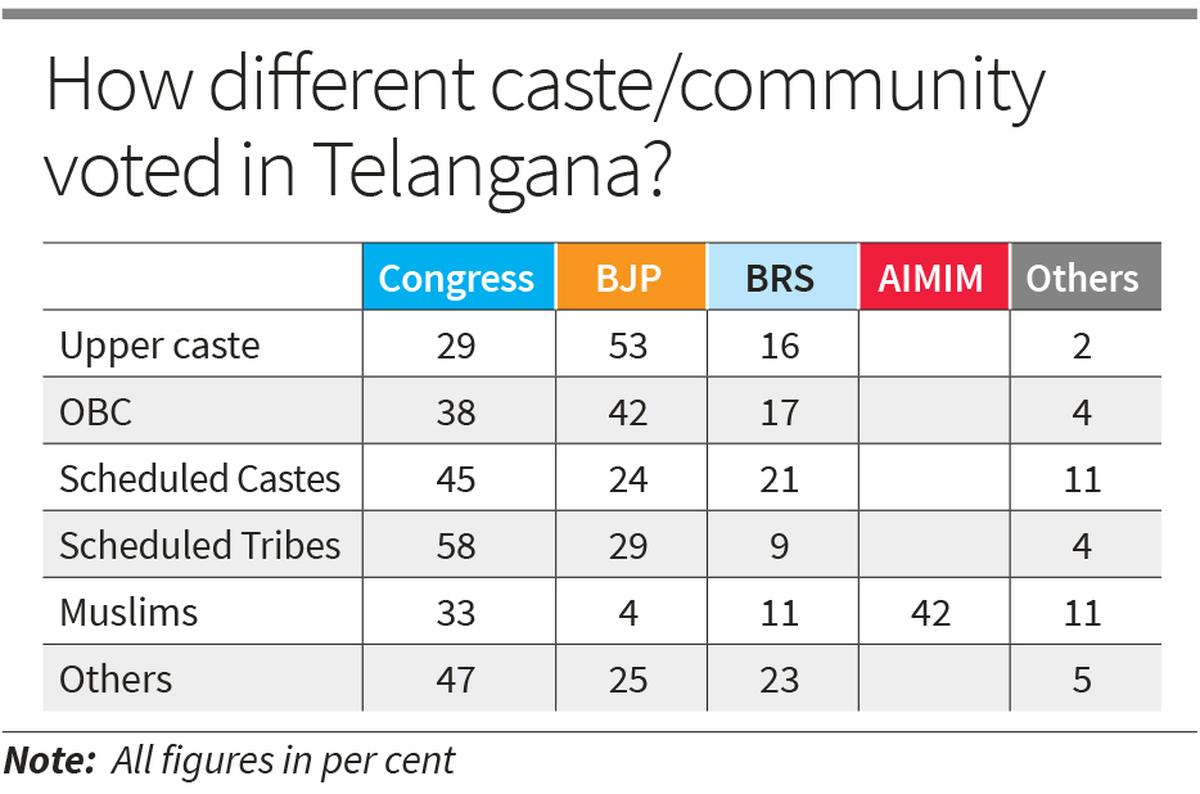
Union Home Minister Amit Shah, Hyderabad BJP candidate K. Madhavi Latha and others during an election rally at old city in Hyderabad on May 1, 2024.
| Photo Credit: The Hindu
The decoupling of the Assembly and Lok Sabha elections in Telangana in 2018 has proved costly for the party that comes to power in the State elections.
In the 2024 Lok Sabha election, the Bharatiya Janata Party (BJP) improved on its performance in the Assembly election, with more than a two-and-a-half times jump in its vote share. This surge helped the BJP double its seats compared with the 2019 Lok Sabha election.
The inability of the Bharat Rashtra Samithi (BRS) to recover from its defeat in the Assembly election in 2023 left the party performing poorly in the Lok Sabha election. Additionally, many important leaders who joined the BRS (earlier TRS) a decade ago left the party for greener pastures in the Congress and the BJP. The vote share of the BRS dropped to 17% in the Lok Sabha election from 38% in the Assembly election last year.

The BRS seems to have strategically transferred its votes to the BJP in at least three Lok Sabha constituencies.
Massive shift
According to the survey, there has been a massive shift in OBC (42%) and upper caste votes (53%) to the BJP. There is a high probability that this vote shift has come from the BRS. If this trend continues, the BRS may face even more difficult times ahead.
This push by the BJP in Telangana is consistent with its focus on the Lok Sabha polls. Three of the eight MPs-elect from the BJP in Telangana are from the Backward Classes, four from the upper castes, and one from the Scheduled Tribes.
The Congress, on the other hand, was not able to consolidate its victory in the Assembly election and conceded space to the BJP in the Lok Sabha election.
H. Vageeshan is Assistant Professor at NALSAR, Hyderabad, and T. Venkatesh is a PhD student at University of Hyderabad






